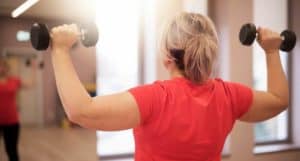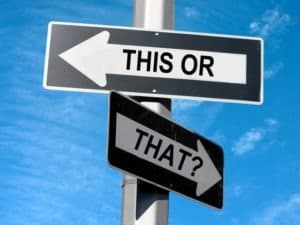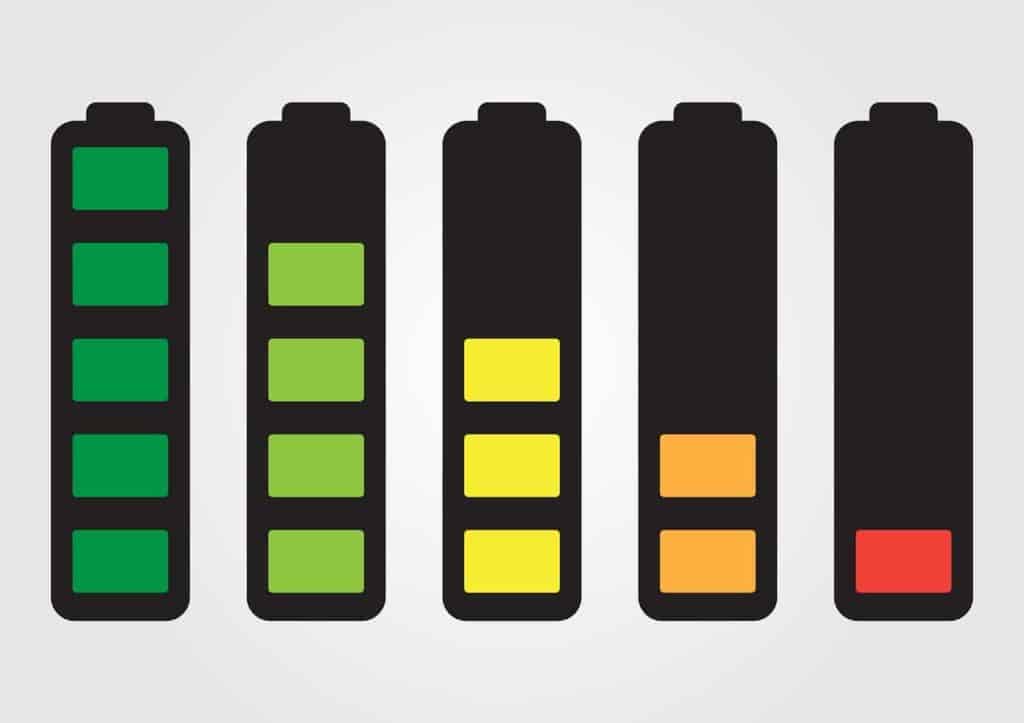
If you’re not happy with your current weight, you probably spend a lot of time thinking about how to lose weight.
“I will eat 1200 calories a day.”
“I’ll ban all carbs.”
“I’ll drink protein shakes for breakfast and lunch.”
“I’ll do Whole 30. (Again).”
But these are not strategies that lead to weighing less. These are strategies that (sometimes) lead to losing weight, and then (usually) regaining it.
I want you to stop focusing on how you’re going to lose weight. Instead, I want you to imagine that you weigh less right now. Really picture what that looks and feels like. And now, I want you to walk yourself through a typical day. What sort of habits and lifestyle does that version of you have?
For example, as a person who weighs less, you’d probably:
- Limit your intake of sweets, refined carbohydrates, and fried foods. (Note: I didn’t say “never eat sweets, refined carbohydrates, or fried foods.”)
- Avoid eating in front of the television or computer.
- Eat more vegetables and fewer starches. (In other words, gravitate toward foods that fill you up for fewer calories.)
- Take slightly smaller portions.
- Stop at a single cocktail or glass of wine.
- Have fruit for dessert—or no dessert, most of the time.
- Drink water or tea instead of soda.
- Make time most days for a 20-30 minute walk at lunch or before dinner, or both.
- Take time on weekends to shop and do a little cooking so that you’re not as dependent on take-out and prepared foods to get you through the busy week.
The Secret is to Start at the Finish Line
Can you picture that trim, healthy person? Can you imagine what a typical day looks like? Can you see what’s on the dinner plate, shopping cart, and kitchen cupboards? Good.
Because that’s what I want you to start choosing right now. Start practicing the mindset, habits, and lifestyle of someone who weighs less and you will become someone who weighs less. (Instead of someone who is constantly trying to lose weight.)
This is not some sort of law of attraction baloney. It’s pure (and proven) cause and effect.
So, who are you going to be today?

 How many food or beverage related decisions do you make in a typical day? Most people estimate that number to be around 15. In reality, the actual number is closer to 200.
How many food or beverage related decisions do you make in a typical day? Most people estimate that number to be around 15. In reality, the actual number is closer to 200.
 One reason that diets don’t work is that they rely too much on willpower.
One reason that diets don’t work is that they rely too much on willpower. I’ll bet you have a number in your head that represents your “goal weight.” Whenever you start a new diet, that number gleams in the distance like a pot of gold at the end of the rainbow.
I’ll bet you have a number in your head that represents your “goal weight.” Whenever you start a new diet, that number gleams in the distance like a pot of gold at the end of the rainbow.
